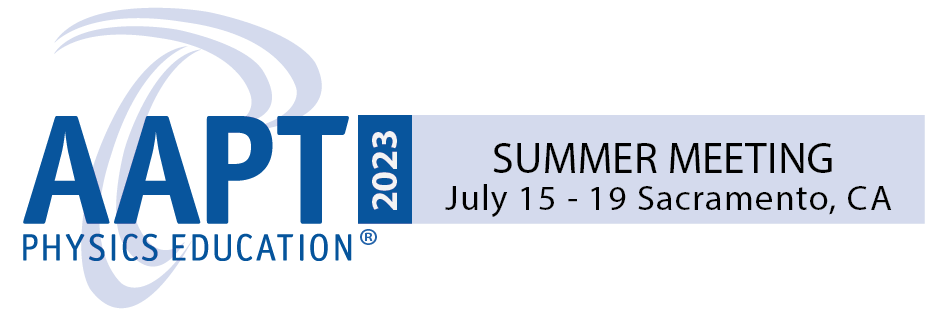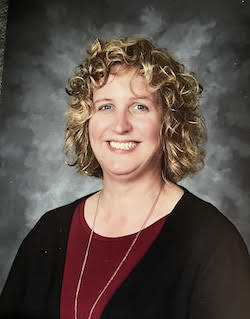- AAPT ›
- Conferences ›
- 2023 Summer Meeting ›
- Plenary Speakers and Awardees
2023 AAPT Summer Meeting Section Navigation Show navigation
- Meeting Highlights
- AAPT Code of Conduct
- AAPT Dependent Care and Accessibility Grants
- AAPT Travel Grants
- Call for Presentations
- Covid-19
- Exhibitor
- FAQs
- Discounts on Travel & More
- Hotel
- PERC
- Program Book (pdf)
- Online Program
- Program
- Moderator Information
- Meeting at a Glance
- Meeting App
- Speaker Guidelines
- Poster Guidelines
- Apparatus Competition Booklet
- Plenary Speakers and Awardees
- Registration
- Special Events
- Two-Year College Tandem Meeting
- Workshops
2023 Summer Meeting
Plenary Speakers and Awardees
Plenary Speakers
Anna Quider
Dr. Anna Quider brings over 15 years of experience and award-winning leadership spanning higher education, the federal government, and the nonprofit sector to helping clients define and achieve their strategic goals. As a former professional astrophysicist, Anna unites a systems-thinking, analytical approach with enthusiasm and creativity to support clients in co-creating unique solutions to their challenges and driving measurable results. She adeptly guides clients through complex issues and ambiguity, with particular strengths across the science, technology, innovation, and higher education sectors; federal government processes and engagement; program and process optimization; and stakeholder engagement. Diversity, equity, and inclusion are Anna’s foundational values and she utilizes a DEI lens for her engagements.
Anna is an educator at heart, and public speaking is a long-time passion of hers. She has developed and delivered hundreds of presentations, workshops, and trainings for 10 to 800+ attendees ranging from government and university leaders to preK through college students and the general public. Venues include international conferences, universities, science & higher education associations, preK-12 schools, bars, churches, a U.S. embassy, and Smithsonian Associates (the education arm of the Smithsonian Institution). Topics include science, technology, and innovation policy, higher education, communication skills, advocacy, government processes, astronomy, careers, and more.
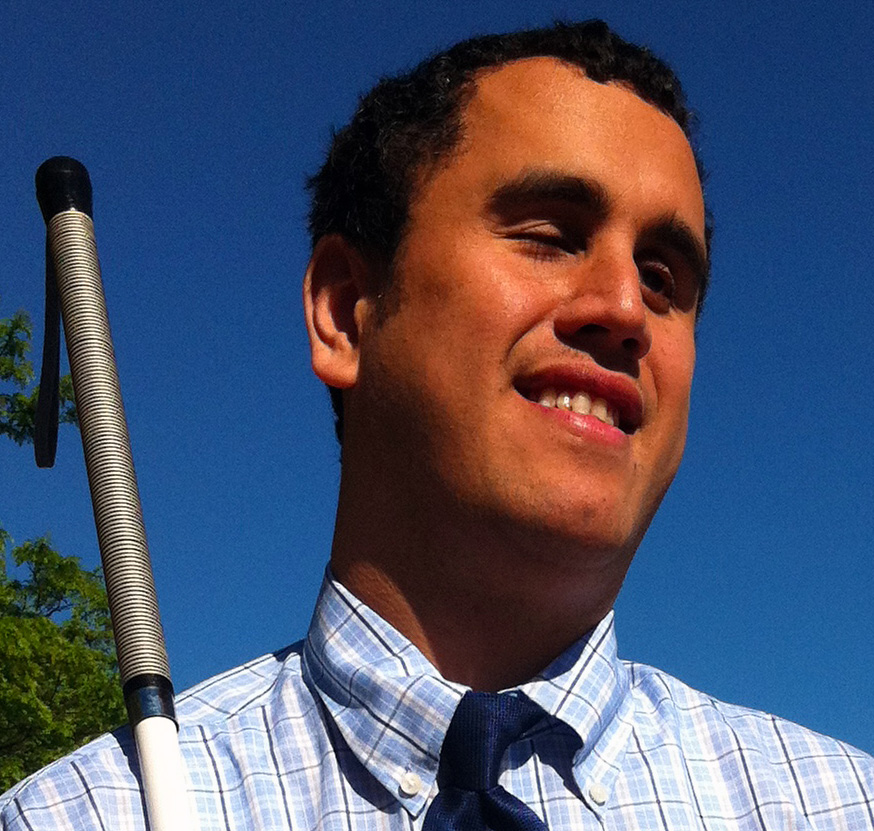
Cary Supalo
Dr. Cary Supalo currently serves as a Research Developer at the Educational Testing Service (ETS). His primary responsibilities are assisting with conducting usability studies on current and new innovative high stakes tests. Additionally, he works with key stakeholders both internally and externally to promote inclusion and equity for all test takers. He also serves as an honorary professor of chemistry at the University of Sydney in Australia. There his research interests focus on making chemistry laboratory curricula more accessible for blind and vision impaired students.
Abstract: Challenges and Innovations for Inclusive Assessments for Blind Students in STEM
In a recent collaboration, the Educational Testing Service and the Carnegie Foundation announced this new refocus on skills development in assessment – a priority that will redefine how STEM assessments
are designed and conducted in the United States. This zeitgeist and its new innovative access technologies will make more inclusive STEM assessments possible. What then is inclusive assessment design? The answer varies depending upon the respondent to this deep question. This presentation will describe where we are today with assessments, how new innovative technologies are shifting the needle towards assessments for skill development and away from time-based approaches, and discuss some innovations on the horizon. Inclusive assessment design works in conjunction with inclusive curricula. As textbook publishers and science education technology firms become more inclusively minded, so too will the STEM subject fields. As STEM industry standards shift towards inclusion, so too must the education profession. Inclusion can and will be the future of STEM education.
Arlene Knowles
TEAM-UP Together Update
Arlene Modeste Knowles is the American Institute of Physics TEAM UP Project Manager. Ms. Knowles selected and convened the TEAM-UP members to execute their charge and complete this project. Additionally, Ms Knowles co-led initial efforts on the development of the SEA Change Physics and Astronomy Departmental Awards and is the 2020 Chair of the American Association of Physics Teachers Committee on Diversity in Physics (CoDP). Formerly, Ms. Knowles spent more than two decades managing and coordinating diversity programs for the American Physical Society including the now retired, Scholarships for Minority Undergraduate Physics Majors, and the National Mentoring Community, a mentoring program to increase the number of minority physics bachelor’s degrees. She advocated for the creation of the APS ad-hoc Committee on LGBT+ issues and worked with them to elevate the presence of LGBT+ physicists within the APS community and produce the first ever, LGBT Climate in Physics Report. Ms. Knowles also served on the Program Management Team of the multi-million dollar grant-funded, APS Bridge Program, and has been instrumental in establishing and advancing several APS diversity initiatives.
Rachel Ivie
Diversity in Physics and Astronomy Update
Rachel Ivie was named the inaugural Senior Research Fellow at the American Institute of Physics (AIP) in early 2021. For most of her career at AIP, she has worked with the Statistical Research Center, where she recently served as Director. Dr. Ivie received her PhD in sociology from the University of North Carolina at Chapel Hill, where she specialized in research methods, statistics, and gender. While at AIP, she has studied the careers of physicists and astronomers, particularly the careers of women in these fields. She has designed and carried out numerous studies: from a global study of scientists outlining gender differences in career progress to a longitudinal study of astronomy graduate students that explains the factors that may make women more likely to leave the field. Dr. Ivie is a Fellow of the American Astronomical Society.
Awardees
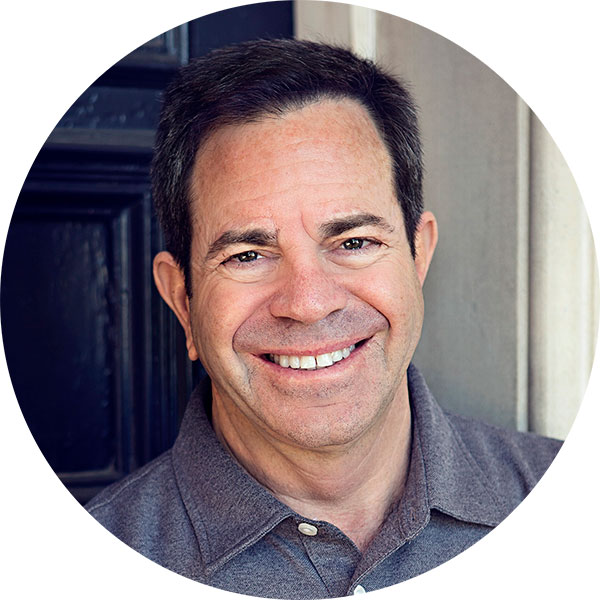
Jeffrey Bennett
Jeffrey Bennett, astronomer, teacher, and writer, is the recipient of the 2023 AAPT Klopsteg Memorial Lecture Award. This award recognizes educators who have made notable and creative contributions to the teaching of physics.
Bennett received his B.A. in Biophysics from the University of California at San Diego and an M.S. and Ph.D. in Astrophysics from the University of Colorado at Boulder. Specializing in mathematics and science education, he writes for and speaks to audiences ranging from elementary school children to university faculty.
Abstract: Pathway to a Post-Global Warming Future — Teaching a Scary Topic with Inspiration, Not (Only) Fear
Today’s students often express despair when it comes to the topic of climate change, which is unsurprising given that the media often portrays our climate future as a choice between bleak and bleaker. But it doesn’t have to be that way, because if we understand the science behind global warming, then we can also see pathways to its solution. In this presentation, I’ll show you how I try to approach the topic “with inspiration, not (only) fear,” by providing simple ways to discuss global warming science, consequences, and solutions. In this way, students (and adults!) can begin to envision the possibility of creating a “post-global warming” future within their own lifetimes, meaning a future in which the threat of global warming will have been relegated to the history books. While much of the science will be familiar to physics teachers, I hope you will take away a few concrete ideas to help you in your own teaching.
Alice Flarend
Alice Flarend, physics teacher at Bellwood-Antis High School, Bellwood, PA is the recipient of the The 2023 Paul Zitzewitz Excellence in K-12 Physics Teaching Award. This award is in recognition for contributions to pre-college physics teaching and awardees are chosen for their extraordinary accomplishments in communicating the excitement of physics to their students.
Flarend’s B.S. in Nuclear Engineering is from the University of Illinois – Urbana. She earned her M.S. in Nuclear Engineering at the University of Michigan – Ann Arbor, her Certification in Secondary Physics and Chemistry at the University of Pittsburgh – Johnstown, and her Ph.D. in Curriculum & Instruction at Pennsylvania State University – University Park. She is also National Board Certified and co-author with Bob Hilborn of the book Quantum Computing from Alice to Bob.
Abstract: The Power of Words
We come to AAPT meetings to talk about physics. We share ideas and collaborate in order to find that perfect analogy to describe potential energy or how to setup a demo. Many conversations result in thought-provoking questions from peers about how or why we do certain things. These communications help us learn. We improve our understanding and, ultimately, our work.
I will argue language is an often overlooked but powerful pedagogical tool in the classroom. Of course, we all talk to our students, but do we talk with our students? Are we the only ones talking? Using language for learning means not only the language a teacher uses in explaining ideas, but also the opportunities the student has to communicate. Students have different experiences that influence their path to building an interconnected model of the world of physics. In building a more robust and nuanced model, they need to share their understandings, explain their unique connections and evaluate the ideas of others. Physics classroom should be filled with student voices and student ideas.
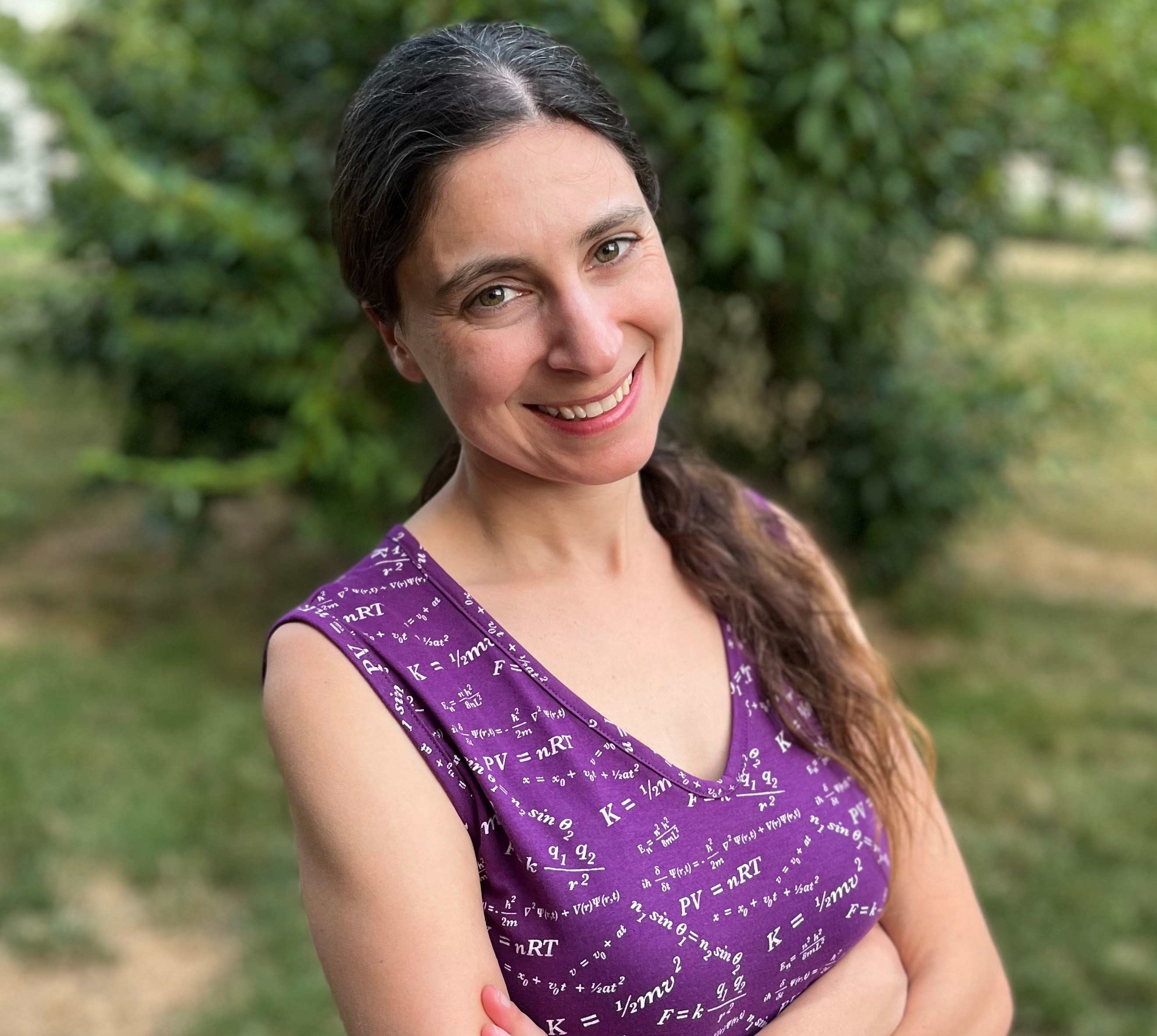
Danielle Buggé
The 2022 National Teacher of the Year is Danielle Buggé of West Windsor-Plainsboro High School South in Princeton Junction, NJ. Buggé was nominated by PhysTEC institution Rutgers University, from which she graduated.
Throughout her 13-year career, Buggé has created an environment where students develop confidence in science, communication, and collaboration. From her dedication to students and the teaching of physics, many successes followed.
Buggé builds her classroom using the Investigative Science Learning Environment, inquiry-based learning, universal design for education, and productive failure techniques. Her teaching techniques are backed by research, much of which she has performed herself. Students in her classroom, even though they come in nervous and unsure about science, learn to reflect on their own learning, to think critically, and to communicate and collaborate effectively. More often than not, those students at least consider going into a STEM field after high school. Many of them actually do.


